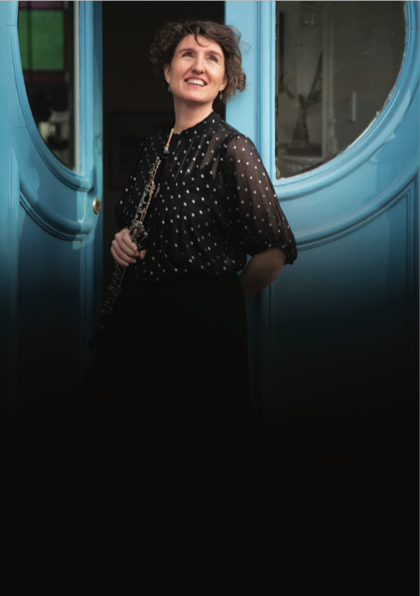Arts Review
Review: The Queensland Symphony Orchestra Presents Shakespearean Classics

The Queensland Symphony Orchestra Presents Shakespearean Classics
Concert Hall, QPAC
Sun 9th May, 2021
Conductor Max McBride
Host Guy Noble
Soloist Rebecca Cassidy, soprano (Opera Queensland Young Artist)
NICOLAI Overture to The Merry Wives of Windsor
WALTON Music from Henry V; A Shakespeare Scenario
SCHUBERT Who is Sylvia?
PROKOFIEV Music from Suite No.3 from Romeo and Juliet
BEETHOVEN Op.101 Overture to Coriolan
VERDI Willow Song from Otello
MENDELSSOHN Op.67 Wedding March from A Midsummer Night’s Dream
TCHAIKOVSKY Op.61 Hamlet Fantasy Overture after Shakespeare
Dr Gemma Regan
“When I have requir’d some heavenly music” the QSO always come through!
Richard the Third shuffled on hunched and wizened to open the second of the Music on Sunday's series with his speech “now is the winter of our discontent…” hamming it up Laurence Olivier-style until he was fortuitously stopped mid-sentence and told to introduce the concert. After a quick change, the irrepressible Guy Noble returned in formal attire to introduce a Mother’s Day Shakespearean Classics which delivered a sample of eight musical pieces that the world’s greatest playwright has inspired amongst his 38 plays.
Noble claims that the Music on Sunday's series has been a big part of his life, after starting to present concerts from the age of three, and that he always aims to “entertain and delight”, which he certainly did! First-violin Scarlett Gallery, who was debuting for the QSO, was instantly thrown into the deep-end when Noble asked her to read out one of Shakespeare’s numerous witty insults which was “Thou weedy spotted toad ratsbane!” Resulting in a round of applause and sympathy for poor Scarlett who is sure to fit in well with the QSO.
A sparkling moon aurally rose over the forest of Windsor as fairies chattered via the woodwind section in Nicolai’s Overture to The Merry Wives of Windsor. It premiered in 1849, and the QSO’s clash of the cymbal and taunting trumpets as the fairies plotted to fool the devious Falstaff was entertaining as it would have been then. Accomplished conductor Max McBride swayed and bobbed with the frivolities, thoroughly enjoying being at the helm. Noble welcomed McBride to Brisbane exclaiming that he was from Canberra, but he wouldn’t hold it against him! A previous senior lecturer and double bass player, McBride recently conducted at the premiere of the ANU Orchestra at the Llewellyn Hall in Canberra.
A highlight was the soprano soloist Rebecca Cassidy, mistakenly introduced by Noble as Rachel, whom he later claimed couldn’t sing for s**t compared to Rebecca who was singing! Originally from Townsville, Cassidy has won a variety of awards and scholarships and is part of Opera Queensland’s Young Artist Program. Her bold solo of Schubert’s Who is Sylvia? was enchanting. Based on The Two Gentlemen of Verona, the manuscript for the composition was only found in 1969 in a small pocketbook, so it could have been lost forever.
Cassidy also sang Verdi’s Willow Song from Otello. A heart-rending solo was a good example of diegetic music, where it describes the character’s narrative. Desdemona pines for the return of Othello only for him to murder her out of misplaced jealousy. The earliest record of musical interpretation of The Willow Song is for the lute from 1583. Verdi’s 19th-century version uses a repeating two-note motif of anticipation as she cries Salce, Salce (Italian for willow), which is rent apart when with four strikes from the QSO orchestra you can hear her violent demise.
Noble introduced Tchaikovsky’s Hamlet Fantasy Overture after Shakespeare as “a bundle of laughs” with Thomas Alley on the “Too-Ba or Not Too-Ba”. Alley demonstrated his skills in delivering the soliloquy through the tuba until mercifully stopped. Gertrude Hamlet’s mother was not a good example of a good mother for Mother’s Day. However, the QSO were adept at creating the brooding mood of Hamlet which should be renamed an Anthem to the Dark Night of the Soul!
The orchestra finished with the either joyous or terrifying (depending on experience) iconic Wedding March from A Midsummer Night’s Dream by Felix Mendelssohn. It still surprises me that it is used so commonly when the original was for a doomed marriage… Mendelssohn composed the music for a performance of Midsummer Night’s Dream to the King of Prussia at his palace. This final piece was expertly performed by the QSO and suitable for the King himself, finishing with rousing applause from a packed Mother’s Day audience.
With the skills of conductor Max McBride, the QSO and Soloist Rebecca Cassidy, combined with the “entertaining and delightful” host Guy Noble, I can complete Shakespeare’s quote that “when I have requir’d some heavenly music” the QSO always come through!